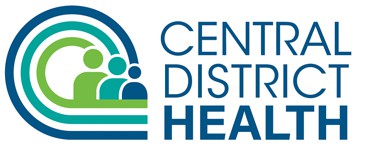Increase in Global and Domestic Measles Cases: Ensure Everyone 6 Months and Older Traveling Internationally and Children are Current on MMR Vaccination
March 25, 2024
An increase in measles cases and outbreaks in the US and globally has been reported by the Centers for Disease Control and Prevention. All U.S. residents traveling internationally, regardless of destination, should be current on their MMR vaccinations. Idaho clinicians should ensure children are current on routine immunizations, including MMR.
Measles (rubeola) is highly contagious; one person infected with measles can infect 9 out of 10 unvaccinated individuals with whom they come in close contact. From January 1 to March 14, 2024, CDC has been notified of 58 confirmed U.S. cases of measles across 17 jurisdictions, compared to 58 total cases reported the entire year in 2023. Among the 58 cases reported in 2024, 54 (93%) were linked to international travel. Most cases reported in 2024 have been among children aged 12 months and older who had not received measles-mumps-rubella (MMR) vaccine. No confirmed measles infections have been reported to Idaho public health officials so far in 2024, however, 10 were reported in 2023. Many popular travel destinations (Austria, the Philippines, Romania, and the United Kingdom) are experiencing measles outbreaks. The risk of widescale spread is low in most U.S. communities where population immunity is high; however, pockets of low MMR vaccination coverage leave some communities at higher risk for outbreaks.
Recommendations for Healthcare Providers
- Children who are not traveling internationally should receive their first dose of MMR at age 12 to 15 months and their second dose at 4 to 6 years.
- All U.S. residents older than age 6 months without evidence of immunity who are planning to travel internationally should receive MMR vaccine prior to departure.
- Infants aged 6 through 11 months should receive one dose of MMR vaccine before departure. Infants who receive a dose of MMR vaccine before their first birthday should receive two more doses of MMR vaccine, the first of which should be administered when the child is age 12 through 15 months and the second at least 28 days later.
- Teenagers and adults without evidence of measles immunity should receive two doses of MMR vaccine separated by at least 28 days.
- Evidence of measles immunity for international travelers is at least one of the following: 1) birth before 1957, 2) documented administration of two doses of live measles virus vaccine (MMR, MMRV, or other measles-containing vaccine), or 3) laboratory (serologic) proof of immunity (measles IgG) or laboratory confirmation of disease.
- Consider measles as a diagnosis in anyone with fever (≥101°F or 38.3°C) and a generalized maculopapular rash with cough, coryza, or conjunctivitis who has recently been abroad, especially in countries with ongoing outbreaks. When considering measles, then:
- Isolate: Do not allow patients with suspected measles to remain in the waiting room or other common areas of a healthcare facility; isolate patients with suspected measles immediately, ideally in a single-patient airborne infection isolation room (AIIR) if available, or in a private room with a closed door until an AIIR is available.
- Protect healthcare workers: Healthcare providers should be adequately protected against measles and should adhere to standard and airborne precautions when evaluating suspect cases, regardless of their vaccination status. Healthcare providers without evidence of immunity should be excluded from work from day 5 after the first exposure until day 21 following their last exposure. Offer testing outside of facilities to avoid transmission in healthcare settings. Call ahead to ensure immediate isolation for patients referred to hospitals for a higher level of care.
- Report: Immediately report to Central District Health at 208-327-8625 or the Idaho Division of Public Health’s Epidemiology Section at 208-334-5939 any suspected case of measles to ensure rapid testing and investigation.
- Test: The Idaho Bureau of Laboratories (IBL) accepts nasal, nasopharyngeal, or throat swabs for reverse transcription polymerase chain reaction (RT-PCR) testing. Blood specimens for IgM serology will be referred to an outside testing laboratory. Samples for RT-PCR should be collected using synthetic swabs and placed into 1-3 mL of Viral Transport Medium (VTM) or Universal Transport Medium (UTM). The specimens must be received at the laboratory within 72 hours at a temperature of 2-8°C. Samples should be frozen at ≤ -20°C and shipped on dry ice If transport is expected to exceed >72 hours post collection. Specimens collected on calcium alginate or wooden shaft swabs, or those submitted dry (without VTM/UTM) will be rejected. Additionally, any sample that exceeds the temperature requirements will not be tested. Detection of measles RNA is most successful when specimens are collected 1 to 3 days following onset of rash. Detection of measles RNA by RT-PCR may be successful as late as 10−14 days after rash onset. In addition to the sample specifics (type of virological specimen, transport media, and date collected), the following information is helpful to include on the specimen submission form: MMR vaccination history & dates (if known), clinical signs and symptoms, patient’s date of birth, rash onset date, any previous test results, and recent travel/exposure history.
- Manage: In coordination with public health, provide appropriate measles post-exposure prophylaxis (PEP) as soon as possible after exposure to close contacts without evidence of immunity, either with MMR (within 72 hours) or immunoglobulin (within 6 days). The choice of PEP is based on elapsed time from exposure or medical contraindications to vaccination.
For More Information
- Measles One-Pager for Healthcare Providers | Project Firstline and AAP
- Immunization Schedules | CDC
- Safety Information for Measles, Mumps, Rubella (MMR) Vaccines | CDC
- For Healthcare Professionals – Diagnosing and Treating Measles | CDC
- Interim Measles Infection Prevention Recommendations in Healthcare Settings | CDC
- Rubeola / Measles | CDC Yellow Book 2024
- Measles Lab Tools | CDC
- Webinar Thursday, August 17, 2023 – We Must Maintain Measles Elimination in the United States: Measles Clinical Presentation, Diagnosis, and Prevention (cdc.gov) (Free CE)

